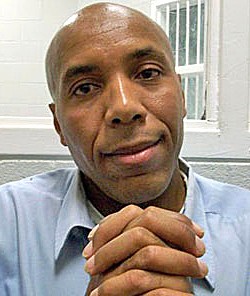
Attorney General Ken Cuccinelli applauded the Court of Appeals of Virginia’s 6-4 decision to fully exonerate Thomas Haynesworth from his 1984 sexual assault convictions in a series of rapes in Henrico County and Richmond. The court granted Haynesworth’s writs of actual innocence on Tuesday morning.
“Today marks the end of an unimaginable nightmare for Thomas Haynesworth. For 27 years in prison, he always maintained his innocence and continuously displayed tremendous dignity and grace, steadfastly believing that justice would one day be served. Today, justice was in fact served, and Thomas Haynesworth was finally granted the total freedom he so deserves,” said Cuccinelli.
In 1984, while picking up groceries for his mother, Haynesworth was mistakenly identified as the man who had attacked five women in the Richmond metro area. He was later convicted and imprisoned for three of these attacks. Haynesworth then served 27 years behind bars for crimes he did not commit.
In 2009, DNA testing cleared Haynesworth of one of the rapes and also confirmed that another man — Leon Davis– actually committed the crime. No DNA evidence remained in the two remaining convictions, but DNA testing in another case where Haynesworth was acquitted also cleared him and implicated Davis. Davis is currently serving seven life sentences for another series of rapes.
Cuccinelli, along with commonwealth’s attorneys Michael Herring and Wade Kizer, were presented with this information and concluded it was necessary to take up Haynesworth’s fight to clear his name.
“We independently reviewed the evidence, the DNA analysis, and the case summaries in the cases,” said the attorney general. “We also met with and sought input from both commonwealth’s attorneys’ offices involved in the original prosecutions. In light of all the information available to us, we concluded that a miscarriage of justice had occurred – not as the result of any misconduct, but simply because of a series of unfortunate, human mistakes. Regrettably, no one at the time had the global view of the case that we are now able to see with the benefit of hindsight.
“Given our conclusion, we encouraged Thomas’s legal team to apply for writs of actual innocence to allow him to be freed from prison and exonerated of the convictions. This office supported the application. Normally, as attorney general, I am fighting to keep people in jail. But this office has an obligation to see that justice is done in every case, regardless of which side of the courtroom that justice may fall. Here, unlike the vast majority of cases we handle, our duty was not to defend a defendant’s conviction, but to prove his innocence. Justice demanded it.
“Today, the writs were granted. Today, we celebrate Thomas Haynesworth’s freedom. And today, we recognize that justice has prevailed.”
Following Haynesworth’s application for the writs, Governor Bob McDonnell asked the Virginia Parole Board to look at the case, and the board granted parole in March 2011, based in part on this new information.
Cuccinelli has long been a proponent of providing those who were wrongfully convicted a means to overcome Virginia’s 21-day finality rule and seek relief where new evidence became available after trial. In 2003, then-Senator Cuccinelli cast the deciding vote in the Senate Courts of Justice committee (8-7) to adopt legislation introduced by Sen. Henry Marsh (SB 705) that would have allowed convicted and incarcerated individuals to petition the Virginia Supreme Court for a writ of actual innocence based upon any new non-testimonial evidence, not just DNA evidence. The bill, however, failed to pass the House of Delegates.
The following year, Sen. Ken Stolle introduced a bill (SB 333) that established a one-opportunity procedure for a convicted felon to petition the Virginia Court of Appeals for a writ of actual innocence based on previously unknown or unavailable non-biological evidence. This measure established a process similar to the one that already existed under Virginia law for previously unknown or untested biological evidence, such as DNA. Once again, Cuccinelli supported this legislation, which passed and created the legal procedure that vindicated Mr. Haynesworth.


